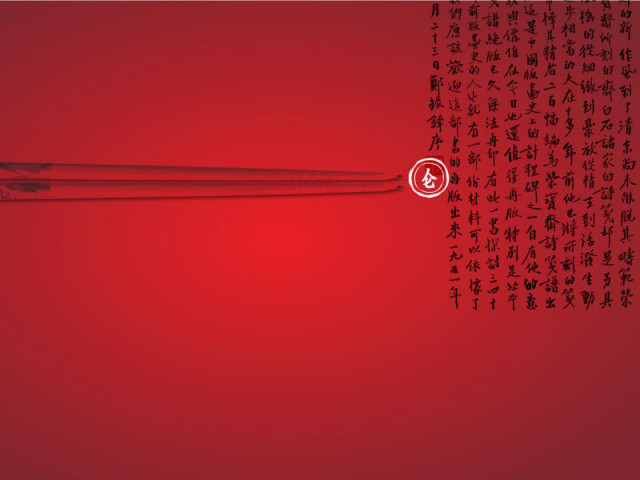Go East, young man!
Mandarin has now set millions of tongues a-wagging around the globe.

It’s Monday morning in Karachi and school is officially in session. As Mehboob Hasan and his fellow students take their places and open their textbooks, the teacher walks in and is greeted by a chorus of voices saying ‘Ni Hao!” in unison. Located in a nondescript bungalow in the back alleys of Clifton, this is no ordinary school, and these are no ordinary students.
For the most part, they are professionals and businessmen who are united in their desire to learn Mandarin. It’s for this reason that they’re not in office with the rest of their colleagues, but are instead attending language classes at the Chinese Language Tutorial Centre (CLTC).
Mehboob and his classmates attend weekly classes here at the CLTC, and a typical day begins with mastering pronunciations and vocabulary, along with a few hours spent learning how to talk about their favourite sports and their professions in Mandarin. While it is considered one of the most difficult languages to master, Hasan says that it really is quite straightforward. “At first we didn’t know what to do but now it has become much easier,” he says proudly.
Sponsored and managed by the state-owned Chinese Guangxi Corporation. The CLTC provides low cost Mandarin instruction in a bid to foster understanding by lowering the language barrier. For these students, there is a practical benefit to be gained from learning Mandarin beyond simply being able to watch Jackie Chan movies without subtitles.
“We have to deal with a lot of Chinese clients,” says businessman Adil Kareem, who is one of a group of students who work in a leather export company. “But we weren’t sent here by the company; we came here on our own expense just to get an edge.” he explains.
That seems to be a common motivation among the CTLC students. John Sulaiman, for example, is trying to learn the language because he claims his family’s meat export business is being swindled by a Chinese intermediary. “He has a monopoly in the market,” complains Suleman. “He is being paid a salary by a company in China to look for Pakistani meat exporters but instead he is charging Pakistani businesses exorbitant sums just to facilitate an introduction.”
Bridging the language barrier would help him cut out the middleman and contact Chinese companies directly. Right now, the language barrier is just too high for him to vault over, but as he buries his nose in his Mandarin textbook it’s clear that this won’t always be the case.
English has long been pushed in Pakistan as the only language that really matters. That’s understandable, given Pakistan’s colonial heritage and the fact that the West has been ascendant for the last several hundred years. But Mandarin has now set millions of tongues a-wagging around the globe. The official and de facto national language of China, Mandarin has more than 1 billion speakers worldwide while English, on the other hand, merely has 540 million. While the majority of Mandarin speakers are of Chinese descent, the numbers of non-Chinese Mandarin speakers are increasing daily and the Chinese Ministry of Education estimates that there are currently 100 million people learning Mandarin all over the world.
As China’s economic clout grows, the ability to directly communicate with Chinese businesses is becoming a major strategic advantage. “China has become a major economic superpower,” says Kareem. “What with the global recession and the shortage of jobs across the world, it’s just plain common sense to now look towards the East instead of the West.” While Mandarin might never overtake English as the world’s lingua franca, it could well provide the edge necessary to get ahead in the coming years. And these students know it.
China itself has been prooting Mandarin since the 1950s within the country itself, where hundreds of local dialects had made communication quite a challenge. Colloquially referred to as the ‘common speech’ or Putonghua, Mandarin is now used extensively in the media, education and formal situations, both in the Peoples Republic of China and Taiwan. Since 2004, China has been promoting Mandarin extensively overseas as well, and has opened more than 300 Confucius Institutes in about 94 countries to help people learn the language. Although quite similar to France’s Alliance Française and Germany’s Goethe-Institut, China’s Confucius Institutes are not independent of the Chinese government and operate within established universities, colleges, and schools. Pakistan currently only has one Confucius Institute at the National University of Modern Languages (NUML) in Islamabad, though there are plans to open another one at Karachi University.
Hoping to capitalise on Pakistan’s already strong relations with China, the Sindh government announced last year that lessons in Mandarin could become compulsory for schoolchildren in Sindh by 2013. Ashfaq Qadri, Additional Secretary of the Education and Literacy Department, clarified that they had decided that Mandarin would be optional and not compulsory. “We will teach Mandarin with help from the Chinese Embassy to our teachers, who will then teach the language in schools all over the province,” he said.
The move has been criticised as being driven by political considerations and has been thought to be a waste of resources considering the lack of Mandarin instructors in the country and the already inefficient and underfunded public education system. But the government seems to be quite keen on the project, and in March of this year, Education and Literacy Secretary Mohammed Siddique Memon said that plans were underway to open Confucius Institutes at universities in Karachi and Hyderabad to train teachers in Mandarin.
“We have already posted ads in all major newspapers asking for applications from teachers willing to learn Mandarin,” confirms former Ambassador Faiz Khoso who is a consultant on this project. Filled with enthusiasm at the prospect of teaching Pakistanis Mandarin, Khoso waves aside any reservations there may be about whether us Pakistanis can learn such a notoriously difficult language. “It all depends on the student’s interest,” he says. “If they are interested then they can learn any language.”
He would know. After giving his CSS back in 1976, Khoso enrolled for a six month Mandarin course at NUML. After he graduated at the top of his class, the Ministry of Foreign affairs decided to send him to China for further language instruction. Soon after, he was appointed the second secretary at the Pakistani embassy in Beijing. “Mandarin really helped me in China, as I was able to connect with the people and learn a lot about Chinese culture,” recalls Khoso.
Regardless of whether the Sindh government’s plan gets off the ground, the private education sector has been interested in Mandarin for some time now.
In 2008, the Institute of Business Administration Karachi (IBA) started offering language courses to students enrolled in their BBA programme. “China is currently the single largest exporting nation in the world and I can safely say that China will overtake the United States to become the largest economy in the world by 2016,” says Dr. Ishrat Husain, dean and director of IBA Karachi. “If this is the emerging economic equilibrium, then Pakistan is in the best position to take advantage and this is why I thought that students from IBA should be learning Mandarin,” he says.
Language is now a mandatory two-semester course at IBA and students can choose from Mandarin, French or Arabic. “Mandarin has a lower enrolment rate than French and Arabic, and that’s because the language is quite difficult,” says Dr. Zeenat Ismail Noor of IBA’s Department of Social Sciences. “But since the Industrial and Commercial Bank of China (ICBC) approached us looking for graduates who could converse in Mandarin, a lot of our students have realised the benefit of learning the language,” she says.
Students Sadiq Balouch and Sofia Zakaria certainly don’t seem to need convincing. “We wanted an edge in our language class, so we took extra classes on our own at CLTC during our summer vacations,” they say. Luckily, the duo even has a Chinese friend who they practice speaking Mandarin with.
But by and large, many students are still blissfully unaware of the advantages of learning Mandarin. When asked if he would consider learning the language Hammad, a student of O levels responded: “Why Mandarin? What will I do in China?” This is a fairly common mindset as students are still more interested in going to the United States or the United Kingdom for further studies. “Arabic and French are the most popular languages in IBA, the former because of religious reasons and the latter because it’s a romantic language,” says Azra Bawany, a student at the IBA. “It doesn’t help that Mandarin is really difficult either,” she concludes.
Learning Mandarin is certainly quite a daunting task, what with thousands of written characters and four oral tones, variations of which can completely change the meaning of the spoken word. Merely reading a Mandarin newspaper requires one to know at least 2,000 pictograms. Khurram Jamali, a banker currently working in Beijing, has been speaking Mandarin for the past eight years but he admits that he can still only recognise about 4,000 characters out of a potential 106,000!
Back home in Pakistan, the search for qualified Mandarin teachers continues. “I am still looking for more teachers because the CLTC could not spare more than one teacher due to the popularity of the language,” complains Dr. Noor. That one teacher is Casey, who also teaches at the College of Business Management as well as at the CTLC itself. While she originally taught English in Beijing, she moved to Pakistan when she realised there was a growing demand for Mandarin teachers. “I know lots of people [in China] who are quite interested in teaching in Pakistan, but it all depends if they can be convinced to come here.”
At the moment, most schools have to make their own arrangements when it comes to finding teachers. In 2011, the Roots school network decided to start Mandarin classes and ended up flying in two teachers from China to head the project and teach full-time. At Lahore’s Aitchison College, the Mandarin programme is now at an advanced stage with around 900 students learning the language. Aitchison has even sent 10 students to China for intensive language courses and has signed a memorandum of understanding with China’s Honder College under which four teachers have been contracted to teach Mandarin.
But for students, enthusiasm can only take you so far. Learning the language in a country with barely any Chinese presence is even harder, as students who do not have anyone to practice with, and language is generally a ‘use it or lose it’ proposition. “They really need someone to practice speaking the language with, which is extremely important when one is learning Mandarin,” says Casey.
But for those who persevere, there are certainly rewards in store. Not only does Pakistan-China trade stand at $7.4 billion right now, geopolitical imperatives mean an even closer relation between the two countries can be seen in the future. Not to mention that learning the language can also be a profitable venture.
Nisar Karim started learning the language six years ago after he realised that he could make a career out of it. He now provides interpretation services to Chinese businessmen and is paid handsomely for his services. “Chinese corporations are constantly visiting the country for business nowadays and my services are often required,” he says with pride. “Since no one here speaks Mandarin, business is really booming.”
Published in The Express Tribune, Sunday Magazine, June 10th, 2012.



















COMMENTS
Comments are moderated and generally will be posted if they are on-topic and not abusive.
For more information, please see our Comments FAQ